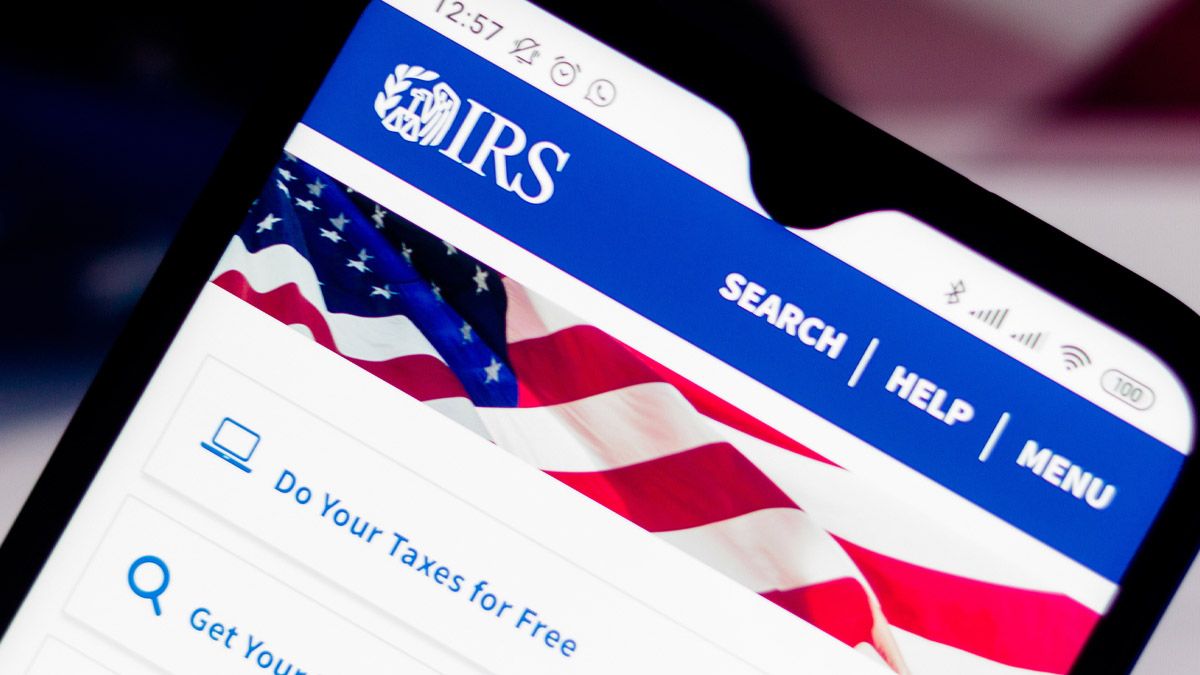IRS $8700 Stimulus Check Eligibility: Your Ultimate Guide To Cash Relief
Let’s face it, folks—money talks, and when the IRS is offering up an $8700 stimulus check, you better believe people are listening. But here’s the deal: not everyone qualifies, and navigating the eligibility rules can feel like trying to decode a secret government document. Don’t worry—we’ve got your back. In this guide, we’re breaking down everything you need to know about IRS $8700 stimulus check eligibility so you can figure out if that sweet cash is coming your way.
Now, I know what you’re thinking: “Is this too good to be true?” Honestly, it depends. The IRS doesn’t just hand out money willy-nilly. There are rules, thresholds, and a whole bunch of fine print that could make your head spin. But hey, life’s tough right now, and if there’s a chance to get some financial relief, why not take advantage of it? That’s exactly what we’re here for—to simplify the process and help you understand what you’re eligible for.
So grab a cup of coffee (or something stronger if you prefer), sit back, and let’s dive into the nitty-gritty details. By the end of this article, you’ll have all the answers you need to determine whether you qualify for the $8700 stimulus check—and more importantly, how to claim it if you do. Let’s get started!
- Lucas Mom The Ultimate Guide To Understanding The Phenomenon And Its Impact
- Star Wars Episode 3 Release Date The Galactic Sagas Most Emotional Chapter
Table of Contents
- What is the IRS $8700 Stimulus Check?
- Eligibility Requirements for the $8700 Stimulus Check
- Income Limits and Thresholds
- Filing Status and How It Affects Eligibility
- Dependent Rules and Child Credits
- Tax Filing Status: Single, Married, or Head of Household
- How to Apply for the $8700 Stimulus Check
- Common Questions About IRS Stimulus Checks
- How to Avoid Scams Related to Stimulus Checks
- Conclusion: Is the $8700 Check Right for You?
What is the IRS $8700 Stimulus Check?
Alright, first things first: what exactly is this $8700 stimulus check we’re talking about? Simply put, it’s a financial aid package designed by the IRS to help individuals and families cope with economic hardships. Think of it as Uncle Sam stepping in to say, “Hey, life’s been rough lately—here’s a little something to ease the burden.”
But here’s the kicker: this isn’t just a random handout. The $8700 amount is based on specific criteria, including your income, filing status, and dependents. For example, if you’re a single filer earning under a certain threshold, you might qualify for the full amount. If you’ve got kids or other dependents, that number could go up even higher. It’s like a personalized relief package tailored to your financial situation.
Why is the IRS Offering This?
The short answer? To boost the economy and help struggling Americans. When people receive stimulus checks, they’re more likely to spend that money on essentials like groceries, rent, and bills. This, in turn, stimulates local businesses and helps keep the economy afloat. It’s a win-win situation—if you qualify, of course.
- Does Derek Morgan Come Back A Deep Dive Into The Mind Of A Beloved Character
- Michael Jackson Death Cause Unveiling The Truth Behind The King Of Pops Tragic End
Eligibility Requirements for the $8700 Stimulus Check
Okay, now let’s talk about the million-dollar question (or in this case, the $8700 question): who’s eligible for this sweet deal? The IRS has laid out some pretty specific guidelines to determine who qualifies. Here’s a quick rundown:
- You must have a valid Social Security Number (SSN).
- Your income must fall below certain thresholds, which we’ll break down in a bit.
- You must have filed a tax return for the most recent tax year.
- Dependents may also qualify, depending on their age and status.
Let’s not forget, though—just because you meet these basic requirements doesn’t mean you’re automatically in the clear. There are plenty of nuances to consider, so keep reading to make sure you’ve got all your bases covered.
Key Factors in Determining Eligibility
Here are the main factors the IRS looks at when deciding whether you qualify:
- Income: Your adjusted gross income (AGI) plays a huge role in determining eligibility.
- Filing Status: Whether you’re single, married, or head of household affects how much you could receive.
- Dependents: Having dependents can increase your potential payout significantly.
Income Limits and Thresholds
Let’s talk numbers, shall we? One of the biggest factors in determining IRS $8700 stimulus check eligibility is your income. The IRS uses something called the adjusted gross income (AGI) to decide who qualifies and how much they’ll receive. Here’s a breakdown of the income limits:
Single Filers: If your AGI is $75,000 or less, you may qualify for the full $8700. Above that, the amount starts to phase out until it reaches $95,000, where you’re no longer eligible.
Married Filers: For joint filers, the threshold is $150,000. If your combined AGI is below that, you’re in the clear for the full amount. Above $150,000, the payout decreases until it hits $170,000, where eligibility ends.
Head of Household: If you file as head of household, the limit is $112,500. Beyond that, the amount begins to taper off until it reaches $132,500.
What Happens if You’re Over the Limit?
Don’t panic if your income exceeds these thresholds. While you might not qualify for the full $8700, you could still receive a partial payment depending on how far above the limit you are. The IRS uses a gradual phase-out system, so it’s not an all-or-nothing situation.
Filing Status and How It Affects Eligibility
Your filing status is another crucial factor in determining IRS $8700 stimulus check eligibility. Whether you’re single, married, or head of household can make a big difference in how much you receive. Let’s break it down:
Single Filers: As mentioned earlier, single filers with an AGI of $75,000 or less qualify for the full amount. Beyond that, the payout decreases until it reaches $95,000.
Married Filers: Joint filers with a combined AGI of $150,000 or less are eligible for the full $8700. The phase-out range is between $150,000 and $170,000.
Head of Household: If you file as head of household, the threshold is $112,500. The phase-out range is between $112,500 and $132,500.
Why Does Filing Status Matter?
Filing status matters because it affects how the IRS calculates your AGI and, subsequently, your eligibility. For example, a married couple filing jointly might have a higher income limit than a single filer, making it easier for them to qualify. It’s all about maximizing your chances of getting that sweet stimulus cash.
Dependent Rules and Child Credits
Now, let’s talk about dependents. If you’ve got kids or other dependents, you could be in luck. The IRS offers additional credits for each qualifying dependent, which can significantly boost your potential payout. Here’s how it works:
Children Under 17: For each qualifying child under the age of 17, you could receive an additional $3000. That’s right—your $8700 check could turn into a much larger sum if you’ve got a brood of kiddos at home.
Older Dependents: Don’t worry if your dependents are older than 17. The IRS still offers credits for older dependents, though the amounts may vary depending on their specific circumstances.
What Counts as a Qualifying Dependent?
A qualifying dependent is someone who relies on you for financial support and meets certain criteria, such as age, relationship, and residency. The IRS has strict rules about who qualifies, so make sure to double-check before claiming any dependents on your tax return.
Tax Filing Status: Single, Married, or Head of Household
Choosing the right tax filing status is critical when it comes to IRS $8700 stimulus check eligibility. Each status comes with its own set of rules and benefits, so it’s important to choose wisely. Here’s a quick refresher:
Single: If you’re unmarried and don’t have dependents, this is likely your status. Keep in mind that the income limits for single filers are lower than for other statuses.
Married: If you’re married, you can file jointly with your spouse. This often results in higher income limits and a larger potential payout.
Head of Household: If you’re unmarried but have dependents, you may qualify for this status. It offers higher income limits than single filing but lower than married filing.
How to Choose the Right Filing Status
Choosing the right filing status can make a big difference in how much you receive. If you’re unsure which status to choose, consult a tax professional or use the IRS’s online tool to help you decide.
How to Apply for the $8700 Stimulus Check
Alright, so you’ve determined that you’re eligible for the IRS $8700 stimulus check. Now what? The good news is, you don’t need to fill out a separate application. The IRS will automatically send your check based on the information from your most recent tax return. However, there are a few steps you can take to ensure everything goes smoothly:
- Make sure your tax return is up to date and accurate.
- Provide your bank account information for direct deposit if you haven’t already.
- Monitor your mail for any updates or correspondence from the IRS.
What if You Haven’t Filed Your Taxes?
If you haven’t filed your taxes yet, now’s the time to get moving. The IRS needs your most recent tax information to determine your eligibility and calculate your payout. Don’t worry—it’s not as scary as it sounds. You can file online or consult a tax professional if you need help.
Common Questions About IRS Stimulus Checks
Let’s tackle some of the most common questions people have about IRS $8700 stimulus check eligibility:
Q: When will I receive my check?
A: The timeline varies depending on how you filed your taxes and whether you provided direct deposit information. Most people should receive their checks within a few weeks of eligibility being confirmed.
Q: Can I check the status of my payment?
A: Absolutely! The IRS has a tool called “Get My Payment” that allows you to track the status of your stimulus check. Just enter your information, and you’ll get an update on where your payment stands.
Q: What if I don’t qualify this year but think I might next year?
A: If your financial situation changes, you may qualify for future stimulus checks. Keep an eye on updates from the IRS and make sure to file your taxes regularly to stay in the loop.
How to Avoid Scams Related to Stimulus Checks
Unfortunately, where there’s money, there are scammers. Be on the lookout for anyone claiming they can “help” you get your IRS $8700 stimulus check faster or for a fee. The IRS will never ask for personal information over the
- When Did Suits Premiere A Deep Dive Into The Iconic Legal Drama
- Vegamovies Nl Your Ultimate Destination For Movie Streaming

Irs Stimulus Check Eligibility 2024 Crista Kaycee

Stimulus Check Eligibility

IRS Issuing 8,700 Stimulus Checks to Qualifying Americans in 2024